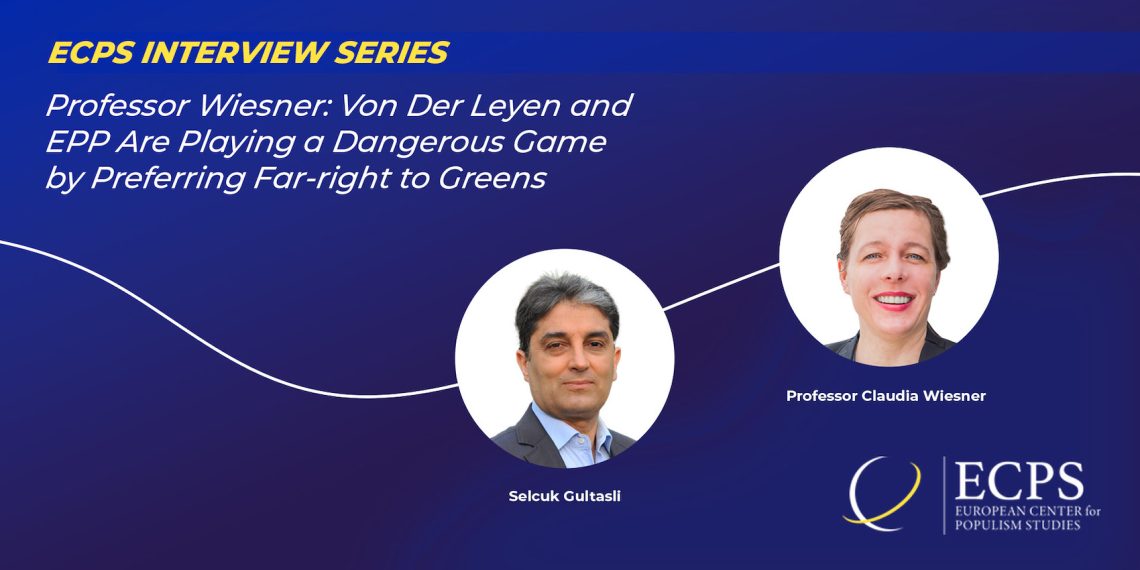Professor Claudia Wiesner voices her concerns regarding the troubling trend of the European People’s Party (EPP) and Ursula von der Leyen, showing a preference for collaborating with populist far-right groups over the Greens. Professor Wiesner argues that this strategy is fraught with risks for the European Union. She questions the strategic interest behind such alliances, emphasizing, “These parties would not support strong European integration. They favor a weaker Europe, whereas the Greens support a stronger Europe. It would be in the interest of a strong European Commission to align with parties favoring a stronger European Union.” Wiesner further highlights the potential legitimacy crisis the EU might face if it continues down this path.
Interview by Selcuk Gultasli
In an intriguing interview with the European Center for Populism Studies (ECPS), Dr. Claudia Wiesner, Jean Monnet Chair and Professor for Political Science at Fulda University of Applied Sciences, discussed the concerning trend of the European People’s Party (EPP) and its leader, Ursula von der Leyen, showing a preference for collaborating with far-right groups such as Giorgia Meloni’s Fratelli d’Italia over the Greens. Professor Wiesner argued that this strategy is fraught with risks for the European Union. She questioned the strategic interest behind such alliances, emphasizing, “These parties would not support strong European integration. They favor a weaker Europe, whereas the Greens support a stronger Europe. It would be in the interest of a strong European Commission to align with parties favoring a stronger European Union.”
Wiesner further highlighted the potential legitimacy crisis the EU might face if it continues down this path. “If the major faction in the European Parliament collaborates with groups that have previously acted against these principles and the rule of law, it will create a legitimacy problem for the EU,” she warned. She raised critical concerns about how citizens could trust von der Leyen’s commitment to defending democracy when she collaborates with leaders like Meloni, who has been accused of undermining media liberty in Italy, or the Polish Law and Justice Party (PiS), known for driving democratic backsliding in Poland.
The issue of coalition-building in the European Parliament is another significant challenge. According to Wiesner, the volatility of majorities necessitates a coalition of at least four political groups, including Conservatives, Social Democrats, Liberals, and Greens, to achieve consensus. However, current debates suggest the possibility of excluding the Greens in favor of the European Conservatives and Reformists (ECR), which could further complicate efforts to foster a unified and strong European Union.
Professor Wiesner’s insights underscore the complexities and potential pitfalls of current political maneuvers within the EU. Her critique serves as a stark reminder of the importance of adhering to the EU’s foundational values and the risks involved in straying from these principles for short-term political gains. “If the European Union wants to be credible in defending its values, it needs to defend these values internally as well,” she concluded, highlighting the need for consistency and integrity in EU governance and policymaking.


